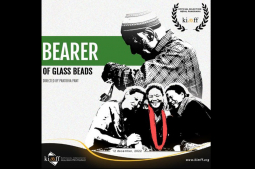Lost love
3 years ago

3 years ago

3 years ago

3 years ago

4 years ago

4 years ago

Addiction can simply be referred to as great attraction or interest in doing or having something. It includes all kinds of bad habits affecting the health of individual, family and society etc. It is a convoluted disease, deeply rooted from its origin. Addiction mostly include the activity of having or taking drugs, alcohol, nicotine, cocaine and others or behaviors such as gambling and even practice of sexual intercourse. Addiction is a type of disease which not only affects a person physically but also mentally. An addict may not be aware of the fact that his/her behavior is adversely affecting him/her as well as his/her family and society because of the pleasurable effects he/she gets while doing or having something.
There are several causes of addiction. Generally most of them are bound to environment, genetics and age. These three are the major causes that lead an individual to addiction. Researchers have researched that genetics contribute significantly for addiction. it is estimated that genetics factors account for 40% of the risk factors for addiction. Environment is also an important factor which leads an individual to addiction. The environment where the individual lives has a great impact on him. If the environment near an individual is positive, co-operative, helpful etc, then there is a rare chance that an addict will born/rise. Finally, the age between 10-19 has a very great impact on an individual. In this age an individual has curiosity about various things. If an individual controls himself in this age he will most probably get success in his life but if he gets distracted or diverted then there is very less chance of him/her getting success in his life. Other causes of addiction are influence of bad company, broken home and conflict in family, feeling of loneliness, excessive freedom, wrong model, mental tension etc.
There is a vast effect of addiction on an individual as well as his family, society and as whole nation. The first and foremost is that this effects a certain part of brain called "reward" circuit which is of limbic system. This area of brain is mainly responsible for the behavior, reaction, instinct and mood etc. This leads in the change in the behavior, choices, likes and dislikes, ways of performing activities etc. If a pregnant woman is an addict of harmful substances then it even affect the health and mental abilities of the unborn child. Other effects of addiction are loss of health, dignity, wealth and manpower, hindrances for personal and national development, increase in the crime etc.
in this modern era, several measures to solve drug addiction has been discovered. A proper and good treatment focuses on various amplitudes of life. It should also include the support from the family members. Different kinds of medication are done for different addicts on the basis of the type of addiction, length of time etc. The family members should try their best to maintain a respectful environment in this process. Other preventions can be by avoiding smoking and chewing tobacco, avoiding the company of addicts, upholding the social norms and values, respecting each other’s feelings and maintain a good relation with everyone, providing counseling and awards for those who have left addiction, engaging in creative works, preventing family disharmony, caring and loving to each other. Parents, teachers and society should try to understand the teenage of the children and guide them to the right path.
Currently, in the context of Nepal various efforts have been done to reduce addiction in the country. Rehabilitation centers are opened in different parts of the country. ‘Narcotic Drugs (Control) Act 2033' has been implemented. Publicity against the use of drugs has been made through different media. Awareness programs are launched by NGOs and INGOs. The subject matter related to the harmful effects of drug addiction is included in the curriculum of different levels.

- by RAKHI BIND

- by Republica

- by Bishakha Koirala

- by Divya Adhikari
Leave A Comment